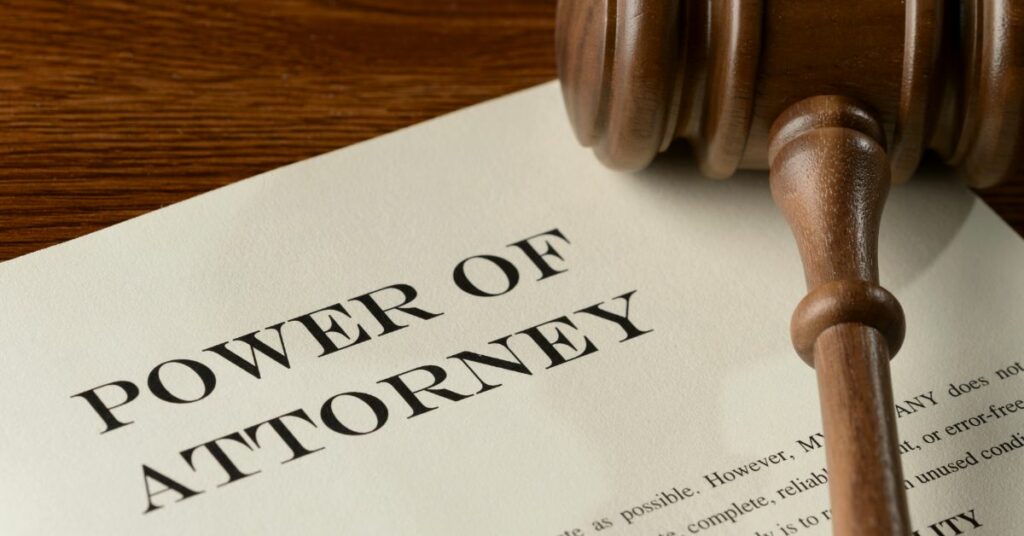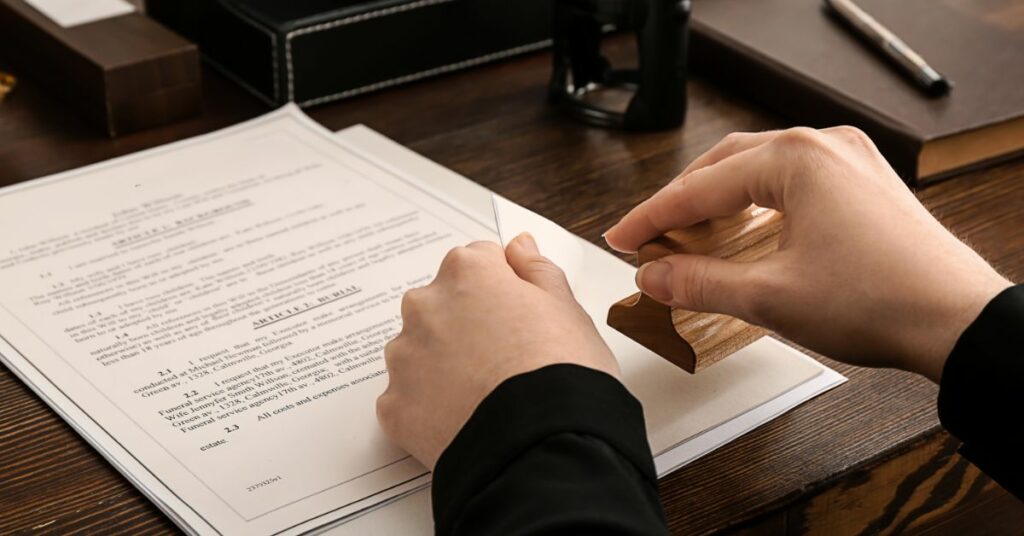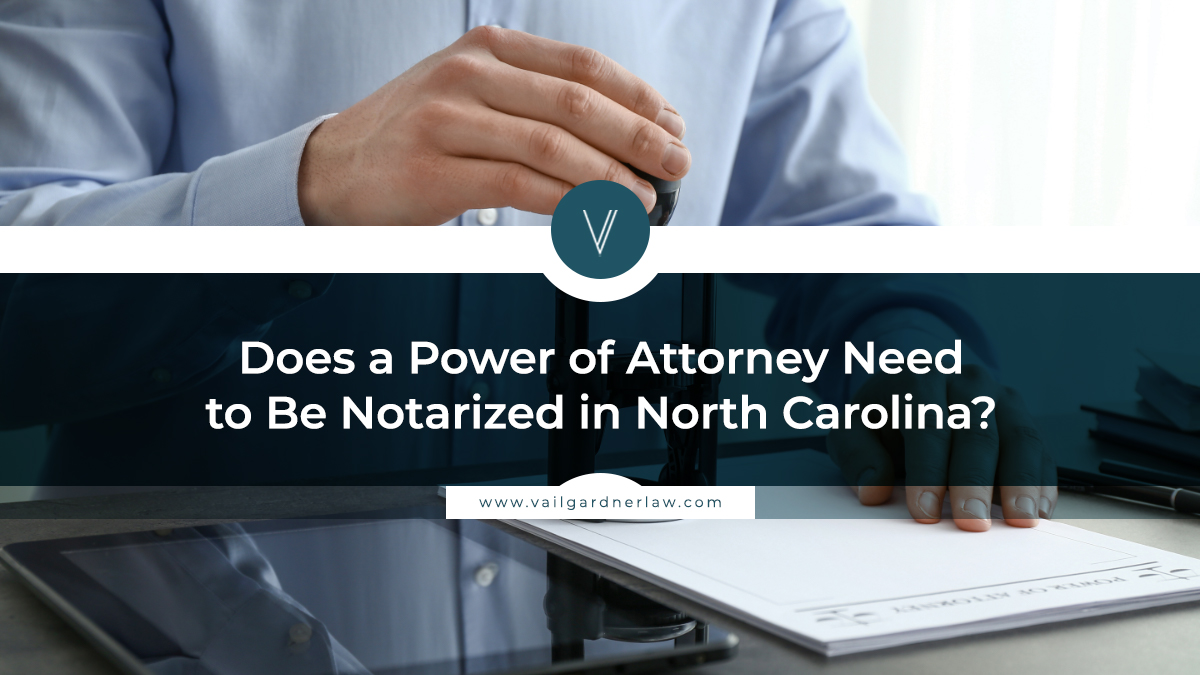When you’re preparing important legal documents, like a Power of Attorney (POA), there’s often confusion about the specific requirements involved. You might wonder, “Does a power of attorney need to be notarized? Is it necessary, and is the document valid without it?”
In North Carolina, the laws are clear, but it’s easy to miss the finer details. Let’s talk about what you need to know to ensure your Power of Attorney is effective and legally binding. Understanding these steps will help you avoid any potential setbacks.
Does a Power of Attorney Need to Be Notarized in North Carolina?
Legal Requirements for a Power of Attorney
When preparing your own power of attorney, you might be wondering whether this important legal document needs to be notarized in North Carolina. The short answer is yes.
North Carolina law requires notarization for the document to be legally binding. Whether you’re dealing with financial affairs, property transactions, or medical decisions, notarization plays a critical role in ensuring the power of attorney is valid.

What Is the Role of a Notary Public?
A notary public ensures that the principal willingly signs the power of attorney in the notary’s conscious presence.
This is important when dealing with legal matters like bank accounts or property transfers, as it verifies the signer’s identity and adds a layer of protection. Without this step, financial institutions or other entities may not recognize the power of attorney as valid.

What Happens Without Proper Notarization?
You may face significant challenges if your power of attorney document is not notarized.
Banks, financial institutions, and businesses may refuse to honor the document. The absence of notarization could cause delays in handling the principal’s assets or making important financial or medical decisions on their behalf.
By ensuring that your power of attorney is signed and notarized according to North Carolina law, you save time and avoid unnecessary complications.
At Vail Gardner Law, we’re here to provide guidance, answer your questions, and help you create an estate plan that works for you. Get in touch today to schedule a free consultation and take the first step toward securing your future with confidence.
Power of Attorney Online? Can You Use Online Notarization in North Carolina?
Currently, North Carolina allows online notarization for a power of attorney. As of July 1, 2023, North Carolina allows remote online notarization (RON) under House Bill 776. This law enables notaries to perform notarial acts remotely using secure communication technology.
However, before this date, notarization required the physical presence of both the notary and the principal. The new statute permits remote notarization for most documents, but there are specific exceptions, such as some legal and estate documents, which may still require traditional in-person notarization
Either way, you’ll need to schedule time with a notary public to have your power of attorney notarized. Whether online or in-person, you need the official seal of the notary.
Make sure to have all the necessary forms and identification ready for this step, as it’s an essential part of executing a valid power of attorney.
Other Requirements for a Valid Power of Attorney Document in NC
Many states legally require notarization. However, that’s not all in North Carolina. The execution of a power of attorney document has other requirements, too.
1- Mental Capacity
In North Carolina, the principal must have sufficient mental capacity at the time of signing the power of attorney documents.
This means the principal must understand the nature and significance of the legal document they are signing, the powers they are granting to the agent, and the potential consequences of those actions. If the principal lacks the necessary capacity, the document will not be valid.

2- Witnesses Potentially Required
In North Carolina, a durable power of attorney does not legally require two witnesses. The law does not require the use of witnesses for general powers of attorney documents.
- However, some attorneys may suggest it for added legal security or if the document needs to be valid in another state that requires witnesses.
- The witnesses cannot be a family member or anyone who stands to benefit from the power of attorney.
- This step helps to ensure the document holds up legally and that banks, medical institutions, and other entities will accept its authority.
You can read the NC law in Chapter 32C of the North Carolina Uniform Power of Attorney Act.
Making the Right Decision
Understanding and following North Carolina’s legal requirements when creating a power of attorney ensures that others recognize and enforce your document.
Whether for handling bank accounts, managing property transactions, or making medical decisions, notarization ensures authenticity. If you’re uncertain about any part of the process, a power of attorney lawyer can provide helpful resources and guidance to ensure you complete all documents properly.

Vail Gardner Law: Comprehensive Estate Planning for Life
At Vail Gardner Law, we understand that estate planning is about more than just your assets. It’s about securing your future and providing peace of mind for you and your loved ones.
Whether you’re planning for major life changes, preparing for the unexpected, or simply ensuring that others respect your wishes, we’re here to guide you every step of the way.
Tailored Solutions for Your Unique Needs
No two lives are the same, and your estate plan should reflect your individual goals and concerns. At Vail Gardner Law, we take the time to get to know you personally. This allows us to craft a plan that fits your specific situation, whether you need to address property, financial matters, or healthcare decisions.
You’ll never feel like just another case—we offer personalized service with solutions that make sense for your life.

Navigating Complex Legal Matters with Confidence
Legal documents like wills, trusts, and powers of attorney can feel overwhelming, especially when it comes to understanding the legal requirements in North Carolina. That’s why we’re here to explain each step of the process clearly, ensuring you have the knowledge and tools you need to make informed decisions.
From setting up a general power of attorney to drafting a living will, we help you understand how every piece of the puzzle fits together. Our goal is to simplify the complexities of estate planning, so you feel confident and secure.
Planning for the Future, Today
It’s never too early to start thinking about your estate plan. Life is unpredictable, and having the right plan in place now ensures others follow your wishes, no matter what the future holds.
At Vail Gardner Law, we focus on helping you stay prepared for the unexpected. You can find peace of mind knowing you’ve protected your family and assets.
Get Started With Vail Gardner Law Today
We’re here to provide guidance, answer your questions, and help you create an estate plan that works for you. Get in touch today to schedule a free consultation and take the first step toward securing your future with confidence.

